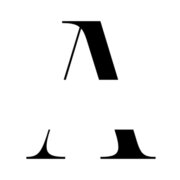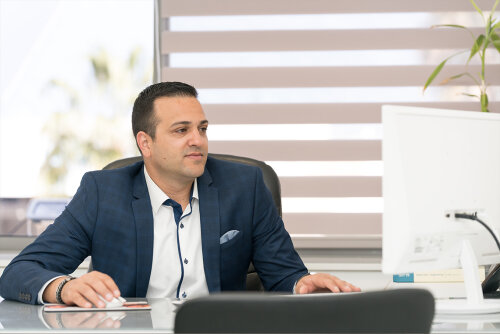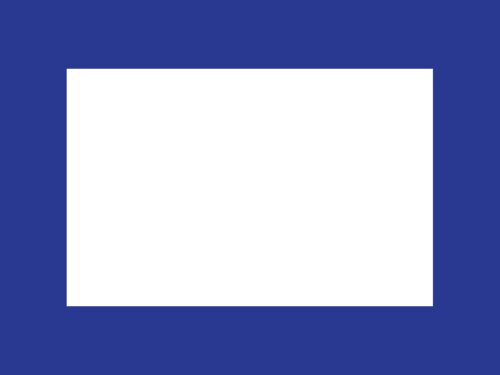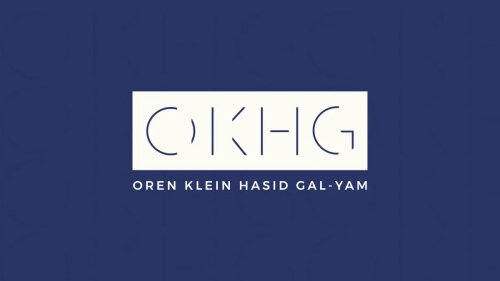Best Ethics and Professional Responsibility Lawyers in Israel
Share your needs with us, get contacted by law firms.
Free. Takes 2 min.
Or refine your search by selecting a city:
List of the best lawyers in Israel
About Ethics and Professional Responsibility Law in Israel
Ethics and Professional Responsibility Law in Israel encompasses a wide array of standards and regulations designed to uphold integrity and accountability within various professions. This legal field primarily focuses on ensuring that individuals and organizations adhere to ethical codes of conduct, prevent misconduct, and maintain public trust. Professional bodies in Israel, such as the Israeli Bar Association and medical boards, establish and enforce ethical guidelines specific to different professions. These guidelines help ensure that professionals conduct themselves in a manner that is both ethical and responsible.
Why You May Need a Lawyer
Individuals or organizations might seek legal assistance in Ethics and Professional Responsibility for various reasons, including:
- Allegations of professional misconduct or breaches of ethical codes.
- Need for legal representation in disciplinary hearings.
- Guidance on compliance with professional regulations and ethical standards.
- Assistance in drafting ethics policies or codes of conduct for businesses or professional entities.
- Advice on conflict of interest situations or whistleblower protection.
- Resolution of disputes involving professional responsibilities or ethical breaches.
Local Laws Overview
Ethics and Professional Responsibility Laws in Israel are shaped by various legislative and regulatory frameworks. Key aspects include:
- Professional Regulations: Different professions are governed by specific laws and regulations. For instance, the Israeli Bar Association Law pertains to legal practitioners, while the Medical Profession Law governs healthcare professionals.
- Disciplinary Bodies: Each professional body has a disciplinary tribunal that oversees complaints and enforces sanctions for violations of ethical standards.
- Whistleblower Protections: Laws exist to protect individuals who report unethical or illegal activities within organizations.
- Conflict of Interest: Regulations require certain public officials and professionals to report activities that could lead to conflicts of interest.
- Continuing Professional Education: Many professions require ongoing education to ensure practitioners remain informed about ethical standards and professional responsibilities.
Frequently Asked Questions
What constitutes a breach of ethics in a professional setting?
A breach of ethics typically involves actions that violate established ethical guidelines or standards set by professional bodies. This could include dishonesty, fraud, confidentiality breaches, or conflicts of interest.
How are ethical violations reported in Israel?
Ethical violations can be reported to the relevant professional regulatory body or disciplinary tribunal, which will investigate the matter further.
What are the possible consequences of an ethical violation?
Consequences may range from reprimands or fines to suspension or revocation of a professional license, depending on the severity of the violation.
Can I appeal a disciplinary decision?
Yes, most professional disciplinary bodies in Israel allow for an appeal process where the decision can be reviewed.
Do lawyers in Israel have a mandatory code of ethics?
Yes, lawyers in Israel must adhere to the ethical standards and code of conduct established by the Israeli Bar Association.
Who ensures compliance with professional ethics in Israel?
Compliance is typically overseen by the relevant professional regulatory bodies, which enforce ethical guidelines and investigate violations.
Are ethical standards uniform across all professions in Israel?
No, ethical standards can vary considerably between professions, as each has its specific regulatory body and code of conduct.
Is it possible to have legal counsel during a disciplinary hearing?
Yes, individuals or entities facing disciplinary action are generally allowed to have legal representation during hearings.
How can a lawyer assist with ethics and professional responsibility issues?
A lawyer can provide guidance on compliance, represent clients in hearings, help draft policies, and offer defense in cases of alleged unethical conduct.
Are there any specific laws in Israel that protect whistleblowers?
Yes, there are specific laws aimed at protecting whistleblowers, ensuring they are not subject to retaliation for reporting misconduct.
Additional Resources
For individuals seeking guidance in Ethics and Professional Responsibility, consider reaching out to the following resources:
- The Israeli Bar Association for legal professionals.
- The Ministry of Health for issues related to medical ethics.
- The Institute of Certified Public Accountants for accountants.
- Whistleblower protection organizations for assistance in reporting misconduct.
- Ethics committees within professional organizations for ethical guidance and dispute resolution.
Next Steps
If you require legal assistance in Ethics and Professional Responsibility, consider taking the following steps:
- Identify the Issue: Clearly define the ethical or professional responsibility concern you are facing.
- Consult a Legal Professional: Seek legal advice from a lawyer experienced in Ethics and Professional Responsibility Law in Israel.
- Gather Documentation: Compile all relevant documents and evidence related to your case or concern.
- Assess Your Options: Work with your lawyer to understand your legal options and potential outcomes.
- Take Action: Following legal advice, take appropriate actions to address the ethical or professional responsibility issue at hand.
By following these steps and utilizing the resources available, you can effectively navigate the complexities of Ethics and Professional Responsibility in Israel.
Lawzana helps you find the best lawyers and law firms in Israel through a curated and pre-screened list of qualified legal professionals. Our platform offers rankings and detailed profiles of attorneys and law firms, allowing you to compare based on practice areas, including Ethics and Professional Responsibility, experience, and client feedback.
Each profile includes a description of the firm's areas of practice, client reviews, team members and partners, year of establishment, spoken languages, office locations, contact information, social media presence, and any published articles or resources. Most firms on our platform speak English and are experienced in both local and international legal matters.
Get a quote from top-rated law firms in Israel — quickly, securely, and without unnecessary hassle.
Disclaimer:
The information provided on this page is for general informational purposes only and does not constitute legal advice. While we strive to ensure the accuracy and relevance of the content, legal information may change over time, and interpretations of the law can vary. You should always consult with a qualified legal professional for advice specific to your situation.
We disclaim all liability for actions taken or not taken based on the content of this page. If you believe any information is incorrect or outdated, please contact us, and we will review and update it where appropriate.
Browse ethics and professional responsibility law firms by city in Israel
Refine your search by selecting a city.
















